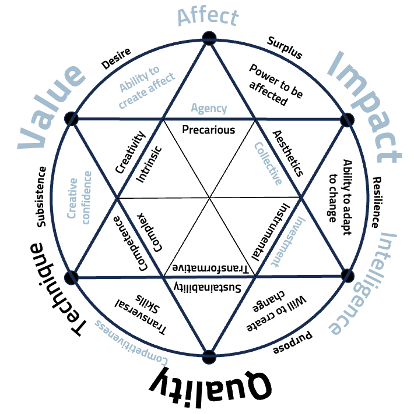
Actionable and sustainable futures depend on transformative economic shifts that move away from extractive business models and their linear 'take-make-dispose' paradigm. Regenerative economies focus on restoring natural resources, reusing raw materials and supporting resilient communities.
Artists and creators are currently pioneering numerous experiments to invent, manage, and modify bio-based materials derived from renewable and regenerative sources. However, often, the outcomes and results of practice-based research do not translate into innovations that gain wider audiences or markets. Most projects remain isolated attempts on a micro level, primarily demonstrating commendable intentions or a certain potential without consistent follow-up or interconnection within broader frameworks.
The first and most obvious challenge is to encourage and empower artists and creatives not only to contextualise their projects within the transition to a regenerative economy, but also to contribute effectively to the replacement of petrochemicals with renewable alternatives. This requires an approach of horizontal and transversal scaling rather than linear and vertical growth scenarios.
Specific challenges for PACESETTERS main target groups:
- For artists and creatives: Entering collaborations with scientists, combining creative confidence and scientific knowledge, creating new forms of collective agency
- For research: Evaluating and documenting the impact and value of these collaborations with a particular focus on their ability to create affect
- For policymakers: Shifting from project based funding to long-term entrepreneurial strategies to strengthen collective intelligences
- For finance and investment: Developing impact investment strategies in the early phase of innovation processes to increase their competitiveness.
